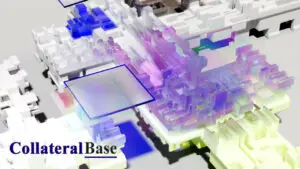 What is an AI lawyer?
What is an AI lawyer?
AI lawyers are a new development in the legal field. They use Artificial Intelligence (AI) technology to support legal proceedings. OpenAI’s ChatGPT provides generative AI for any particular question posed to it. Essentially, an AI lawyer is a computer program that can analyze and interpret legal data, make predictions based on that data, and provide legal help to lawyers, judges, or even parties to litigation like plaintiffs and defendants.
There are many potential applications for AI lawyers, ranging from simple tasks like document review and contract analysis to more complex tasks like legal research and court case prediction. Some AI lawyers are designed to assist in specific areas of law, such as patent law, while others are more general in nature.
What are the benefits of an AI Lawyer?
One of the key benefits of AI lawyers is their ability to process large volumes of data much more quickly and accurately than human lawyers can. This can help to reduce the time and cost associated with legal proceedings, as well as improve the overall accuracy of arguments in legal decisions.
Despite these benefits, there are also some potential drawbacks associated with the use of AI lawyers. For example, there may be concerns about the ethical implications of relying on machines to make legal decisions, and there may be questions about the accuracy and reliability of AI lawyers in certain situations.
Overall, the use of AI in the legal field is still a relatively new area of research and development, and it remains to be seen exactly how it will be used in the future. However, it is clear that AI lawyers have the potential to revolutionize the legal industry and provide valuable assistance to lawyers, judges, and other legal professionals.
Will lawyers be affected by AI?
The rise of AI technology has raised questions about the future of lawyers and the legal profession. While AI can assist with certain tasks such as contract review and legal research, it is unlikely that AI will replace lawyers entirely.
Instead, lawyers may need to adapt to incorporate AI into their practice and stay up-to-date on the latest developments in the field. As such, it is important for lawyers to continue learning and expanding their knowledge of AI-related legal issues to stay relevant in the industry.In conclusion, hiring the right lawyer for your Artificial Intelligence startup is crucial for ensuring that your business is protected and compliant with current regulations.
While the future of the legal profession may be impacted by AI, it is clear that lawyers who can effectively incorporate AI into their practice will be better positioned for success in the years to come.
What are the potential applications of AI in the legal industry?
The legal industry is one of the most important and complex industries in the world. It involves a lot of research, analysis, and interpretation of legal documents and regulations. With the advancement of AI platforms, the legal industry has been able to leverage the power of AI to automate a lot of its processes and make them more efficient.
Here are some potential legal tasks an AI could help a lawyer provide:
- Legal research: Legal research is one of the most time-consuming tasks in the legal industry. Lawyers and legal researchers spend hours poring over legal documents, case laws, and regulations to find relevant information. AI can help automate this process by using natural language processing (NLP) and machine learning algorithms to scan through vast amounts of data and identify relevant information.
- Contract analysis: Contracts are the backbone of any legal agreement. Lawyers spend a lot of time reviewing contracts and highlighting important clauses as part of the due diligence process. AI can help automate this process by using machine learning algorithms to analyze contracts and identify key clauses, potential risks, and opportunities.
- Predictive analytics: Predictive analytics is the use of data, statistical algorithms, and machine learning techniques to identify the likelihood of future litigation outcomes based on historical data. In the legal industry, predictive analytics can be used to predict the outcome of a case, the likelihood of a settlement, and the potential risks and opportunities associated with a legal agreement.
- Legal chatbots: Legal chatbots are AI-powered chatbots that can assist clients with legal questions and concerns. They can provide basic legal advice and guidance, helping to reduce the workload of lawyers and legal professionals. Legal chatbots can also be used for customer service and support, allowing law firms to provide quick and efficient responses to their clients’ inquiries.
In conclusion, AI is set to revolutionize the legal industry in the coming years. By automating many of its processes and providing valuable assistance to lawyers and legal professionals, AI will help to increase efficiency, reduce costs, and improve the quality of legal services. As AI technology continues to evolve, it is likely that we will see even more innovative applications in the legal industry, making the work of lawyers and legal professionals much easier and more productive.
How do AI lawyers compare to human lawyers?
The use of AI in the legal industry has been a topic of discussion for a few years now. As AI technology becomes more advanced, it is increasingly being used to automate legal research, contract review, and other tasks that were once the exclusive domain of human lawyers. However, the question remains: how do AI lawyers compare to human lawyers?
First, it is essential to understand that AI lawyers are not completely replacing human lawyers. Rather, AI is being used as a tool to assist human lawyers in their work. AI can help to improve the efficiency and accuracy of legal research and document review, allowing human lawyers to focus on more complex tasks that require critical thinking and analysis.
When it comes to legal research, AI technology can quickly analyze vast amounts of data and identify relevant cases and statutes, which human lawyers would take much longer to do manually. AI-powered analysis also has the potential to be more accurate than human analysis, as it eliminates the possibility of human error or bias.
Similarly, robot lawyers can assist in contract review, flagging potential issues and discrepancies that human lawyers may have missed. This can save time and reduce the risk of errors in legal documents.
However, there are limitations to the use of AI in the legal industry. One of the most significant limitations is that AI lacks the ability to interpret context and emotions in the way that humans can. In the legal field, context and emotions can play a significant role in determining the outcome of a case. AI may be able to identify relevant legal precedents and statutes, but it cannot fully understand the nuances of the case or the emotions of the parties involved.
Furthermore, while AI can assist in legal research and document review, it cannot replace the skills of a human lawyer when it comes to negotiation, advocacy, and critical thinking. Human lawyers bring a level of judgment, intuition, and creativity that AI cannot match. The legal profession requires empathy, communication skills, and a deep understanding of human nature, which are all skills that AI cannot replicate.
In conclusion, the use of AI technology in the legal industry is a powerful tool that can greatly benefit lawyers and legal professionals. However, it is important to understand that AI cannot replace human lawyers. Rather, AI can assist human lawyers in their work and free up their time to focus on higher-level tasks that require critical thinking and analysis. As AI technology continues to advance, we can expect to see even more innovative applications in the legal industry, making the work of lawyers more efficient, productive, and effective.
Are AI lawyers able to provide legal advice?
AI has made significant strides in various fields, including the legal industry. However, the question of whether AI lawyers are able to provide legal advice is a complex one that requires careful consideration.
AI has been programmed to analyze vast amounts of legal data and case law, making it highly efficient in conducting legal research. Additionally, AI can provide insights and predictions based on this data that can help lawyers make informed decisions. However, despite these capabilities, AI is not yet able to provide legal advice independently.
Legal advice involves providing clients with personalized guidance on legal matters based on their specific circumstances. It requires a deep understanding of the law, as well as the ability to apply legal principles to real-world situations. While AI can analyze data and provide insights, it lacks the human element required to understand the nuances of a client’s individual situation and provide the personalized advice they need.
Moreover, legal advice often involves ethical considerations and judgment calls that require human input. For example, an AI lawyer may be able to provide a client with a list of potential legal outcomes for a case, but only a human lawyer can weigh the consequences of each outcome and provide advice based on the client’s best interests.
In summary, while AI has made significant advancements in the legal industry, it cannot replace the expertise and judgment of human lawyers when it comes to providing legal advice. AI can provide valuable insights and speed up legal research, but it still lacks the human element necessary for personalized and ethical legal advice.
What ethical issues arise when using AI in the legal field?
AI has revolutionized the way processes are conducted in various industries, including the legal field. The use of AI in the legal field has the potential to make legal proceedings more efficient, less time-consuming, and cost-effective. However, the use of AI in the legal field also raises ethical concerns that must be addressed.
One of the ethical issues that arise when using AI in the legal field is the potential for bias. AI systems are designed based on the data they receive. If the data used to train the AI system is biased, the output of the system will also be biased. This could lead to unfair treatment of individuals based on their race, gender, or other characteristics.
It is crucial to ensure that AI systems used in the legal field are unbiased and that the data used to train the system is diverse and representative.
Another ethical issue that arises when using AI in the legal field is the lack of transparency. AI systems are often described as “black boxes” because it is challenging to understand how they arrive at their decisions. This lack of transparency can make it difficult for individuals to understand why a particular decision was made and can lead to mistrust of the legal system. It is essential to ensure that AI systems used in the legal field are transparent and that individuals can understand how decisions are made.
Privacy is also a significant ethical issue when using AI in the legal field. AI systems often require access to large amounts of data to function correctly. This data may include sensitive information about individuals, such as medical records or financial information.
It is crucial to ensure that this data is protected and that individuals’ privacy is not violated. AI systems used in the legal field must be in compliance with privacy laws and regulations to safeguard individuals’ confidential information.
In conclusion, while AI has the potential to revolutionize the legal field, it is essential to address the ethical concerns that arise when using these systems. Bias, lack of transparency, and privacy are just a few of the ethical issues that need to be considered when implementing AI in the legal field.
As legal professionals, it is our responsibility to ensure that AI systems are developed and used ethically and that they uphold the principles of justice and fairness in the legal system. By doing so, we can harness the power of AI while protecting individuals’ rights and ensuring that legal proceedings are conducted fairly and justly.





